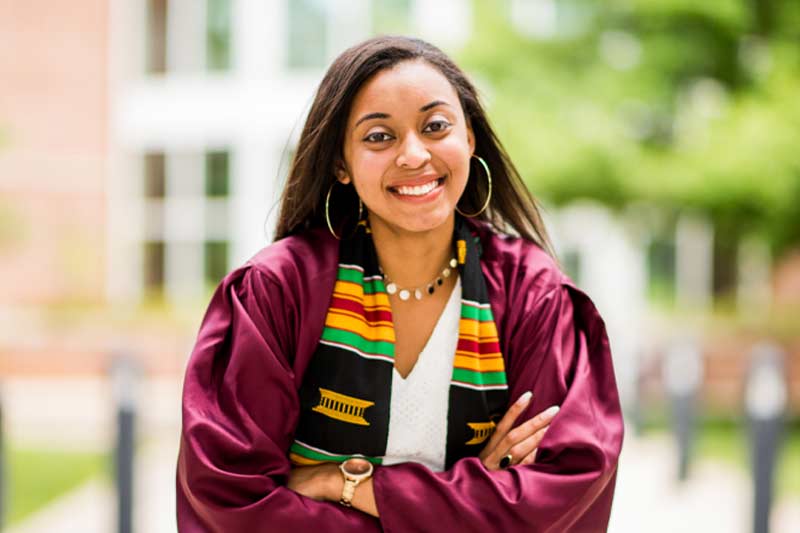Young Alumna Plays Hands-On Role in COVID-19 Vaccine Development
- By Cailyn Whitman, ’18
- Published

Like many essential healthcare workers, Taylor Keyes, ’19, has seen a shift in her job responsibilities ever since COVID-19 hit in March 2020.
As a research technician for a lab at Duke Health, her duties prior to the pandemic centered around studying patient trial antibody responses to HIV/AIDS vaccinations. But with the novel coronavirus now at the forefront of healthcare research, Keyes has a new responsibility: to study COVID-19 samples in support of the search for a vaccine.
Since her lab had experience evaluating antibody responses for HIV, Keyes and her colleagues were able to apply that same expertise in evaluating antibody responses in COVID-19 samples. Duke also gave her the unique opportunity to receive additional training in the biocontainment facility so that she could do hands-on experiments with the actual SARS-CoV-2 virus.
“In a week’s time, I can infect cells with the virus, harvest the cells, and perform experiments to determine whether various antibodies are capable of binding to the infected cells,” said Keyes. “I can also look at serum from COVID-19 patients and assess how ‘infected’ they are.”
As the virus continues to result in devastation across the world, Keyes finds being a part of the solution to be very rewarding. “The thing I love the most about working in vaccine development is knowing that what I’m doing is working towards creating a better future,” she said.
“Research involves a lot of long days and headaches, but it is so rewarding. If given the choice, I would choose it every single time.” Keyes relies on her strengths in being extremely organized, attentive to detail, and inquisitive to succeed in her role. “I think these strengths serve me well as a scientist because in the lab, organization and time management are the keys to getting the job done,” she said. “Having great attention to detail is key to making discoveries.”
During Keyes’ time on Meredith’s campus, she took advantage of the opportunity to conduct undergraduate research investigating HIV treatment possibilities, which is what initially sparked her passion for HIV research, immunology, and public health.
“Meredith’s support for and celebration of student researchers gave me the confidence to pursue research as a career,” she said. “Receiving funding for my research project from the Undergraduate Research Program gave me the chance to fine-tune my scientific skills and helped me become an employable scientist.”
Considering Keyes just recently graduated, the experience she’s gained in vaccine development so far is remarkable. “I am most proud of how much I’ve grown as a scientist in the short time I’ve been with Duke,” she said. “I’ve learned so much already and have no intentions on stopping.”
News Director
316 Johnson Hall
(919) 760-8087
Fax: (919) 760-8330
PRINCETON REVIEW
U.S. NEWS
NICHE
3800 Hillsborough Street Raleigh, NC 27607-5298 | (919) 760-8600 Fax: (919) 760-8330 | © 2024 All Rights Reserved.